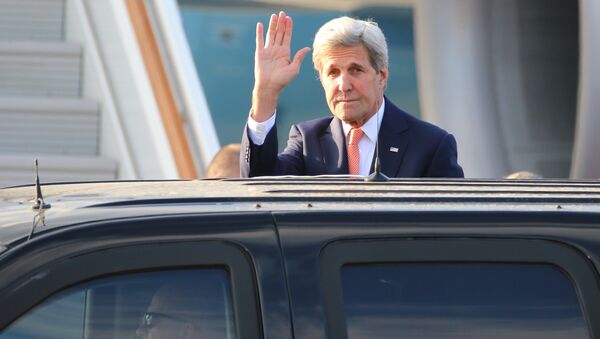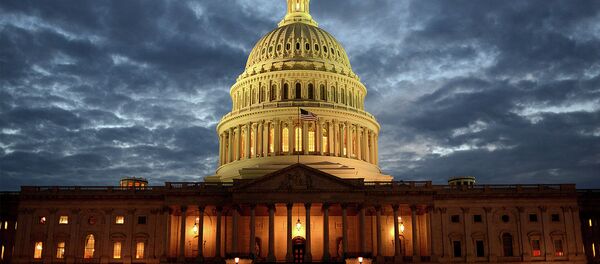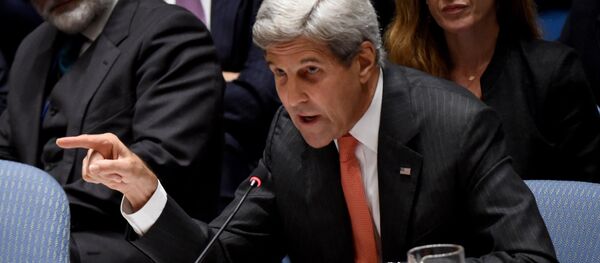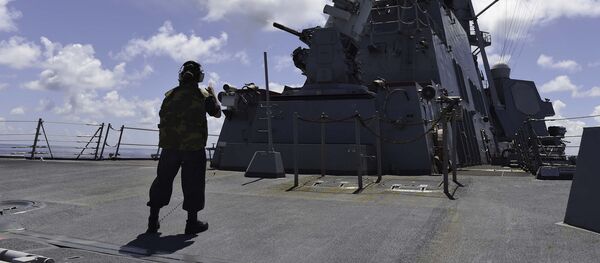“John Kerry has left a trail of destruction in his wake,” Smolarek said, in reference to the diplomat’s policy moves in both Iraq and Syria.
Interestingly, Becker remarked, in the 2004 presidential election, Democrat Kerry ran against Republican George W. Bush, as a peace candidate, capitalizing on Bush’s unpopularity for waging the Iraq War.
“[Kerry] presided over the escalation of the US presence in the Middle East,” Smolarek added. “There weren’t these thousands of US soldiers in Iraq, when Kerry became the Secretary of State. But now there are 6,000 American soldiers in Iraq.”
Kerry, in pushing for aid to Syrian rebels, created chaos in the region. Now, however, Kerry and Washington have rejected their earlier stance, attempting to shift the blame to Russia for bombings and waging a proxy war, Kuzmarov suggested.
“US foreign policy toward Russia should be critically scrutinized, including the expansion of NATO, and the US involvement in Ukraine,” Kuzmarov said. “All of Obama’s policies have antagonized Russia.”
Smolarek observed that increased militarization by the US is rooted in the Republican might-have-been “new American century” that Washington, under President Bush, hoped would flower following the collapse of the former Soviet Union.
“Now that the threat of [Communist] revolution happening, or potential for a country in the third world to realign with alternative [nations] has more or less disappeared, there is a weakening of US ability to control its rivals, when we see Saudi Arabia and Israel distancing themselves from the US, at a certain degree,” Smolarek said. “I think the US is insecure about this.”
Kerry devoted a large part of his Chicago speech to the extremely unpopular Trans Pacific Partnership (TPP) deal, a deregulation trade treaty negotiated in unprecedented secrecy, that would economically shackle the US with South Asian nations, and distance that alliance from China.
However, Wikileaks revelations, alongside the revelation of the startling giveaway of sovereign rights by the signatories, have threatened to derail the agreement, revealing that the deal will increase the exploitation of workers on both sides of the Pacific, and isolate China.
“The details are never made public,” Smolarek said, adding that powerful multinational corporate special interest groups, enjoying a privileged status within the process, understand the sweeping nature of the TPP.
“This is affront to democracy,” Kuzmarov said of the deregulation treaty, adding that both presidential candidates, “have been forced to disavow it because it’s so unbelievably unpopular.”
Historically, the US has reinvigorated a weak American economy by increasing business ties with Asia-Pacific entities, the professor noted. “With these economic problems we have in the US, we see Kerry and other politicians repeating that historical tendency to look to Asia.”
“But the world is changing. We see many people moving away from the American orbit. This agreement is deeply unpopular on both sides of the Pacific Ocean.”





